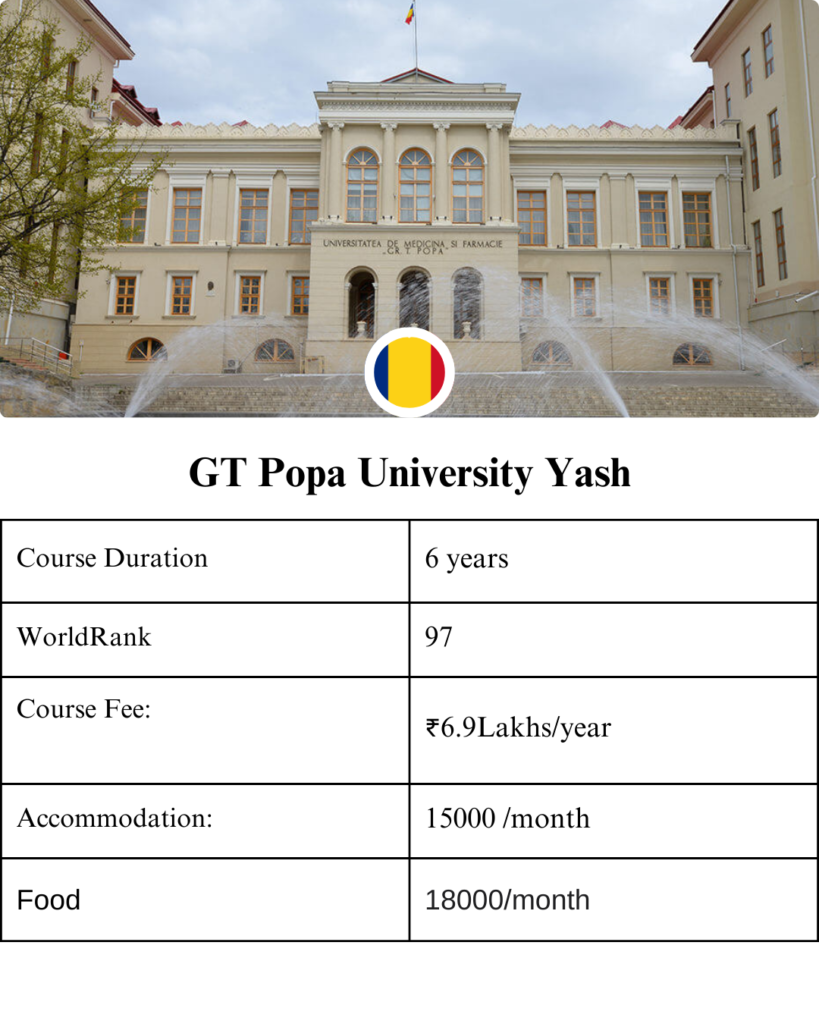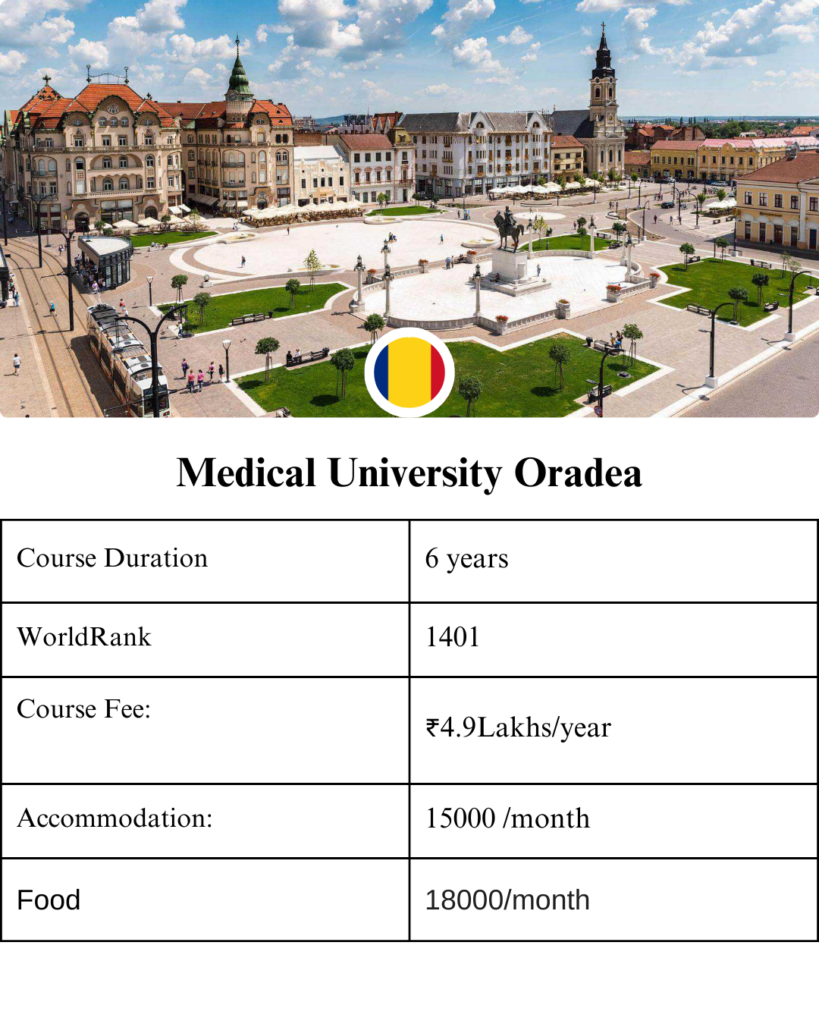Romania
Study MBBS In Romania
Romania has numerous prestigious universities. Medical education in Romania has a good educational quality. Students at Romanian institutions can choose from a variety of medical courses. In comparison to other nations, the cost of tuition is lower in Romania. Candidates can acquire all of the amenities they need for their MBBS studies here. The pleasant weather never causes the students to miss home. Accommodation will be provided for the students. There are several prospects for MBBS candidates to gain worldwide exposure in this location. Many Romanian universities collaborate internationally with other institutions. They have streamlined their admissions process for the candidates’ advantage. English is the medium of teaching for MBBS students in Romania. NMC and WHO have certified all Romanian universities. Students will be provided with many specialty options. There is an opportunity to study new languages. The high-quality educational framework allows students to get in-depth medical knowledge. Candidates will have the opportunity to attend MD courses in Romania. The cost of life and eating is lower here. Romania offers a lot of career options after c


Please take note of the following information:
Completion of the course:
Upon completion of the challenging MBBS course, graduates have promising career prospects, including opportunities for full-time employment in private hospitals, positions in government hospitals, private practice in Romania, or returning to India to explore various options. Additionally, medical graduates can pursue postgraduate studies or opt for a course in Hospital Administration for steady employment in the medical profession. For Indian students completing MBBS overseas and intending to practice in India, passing a screening test administered by the national board is mandatory. Successful candidates can register with the NMC to practice medicine. The NMC screening test is held twice a year and has been replaced by the NEXT exam. The goal of these exams is to assess individuals’ abilities, skills, comprehension, and understanding of critical medical procedures. Foreign medical graduates interested in practicing medicine in India have multiple attempts to clear the exam.
Courses offered in Romania:
The popular fields of MBBS in Romanian medical universities/colleges include General Medicine, Pediatrics Surgery, Pharmacy, Dentistry, Surgery, Nursing, and Post Graduation studies.
Recognition of MBBS Degrees from Romania:
Graduates of any Romanian university for MBBS can practice abroad since all Romanian MBBS degrees are recognized by local and international organizations and bodies. The Ministry of Education and Science as well as the Ministry of Health regulate and sanction all medical education and other programs in Romania. Furthermore, all medical schools and institutions in Romania are globally accredited and recognized. The degrees and certificates awarded to overseas students who graduate from Romanian MBBS colleges/universities have been validated by the Romanian Ministry of Health and Ministry of Foreign Affairs. Moreover, all Romanian medical schools/universities are accredited and listed in the International Medical Education Directory (IMED), making Romanian MBBS graduates eligible to take the United States Medical Licensing Examinations and pursue Postgraduate Medical (Residency) training and practice in the United States. This accreditation is also recognized by the ECFMG (Education Commission for Foreign Medical Graduates) and the MCC (Medical Council of Canada), granting Romanian medical graduates the opportunity to seek certification and license in those countries.
MBBS in Romania is approved and acknowledged by various organizations and bodies such as the World Directory of Medical Schools, The Medical Board of California, Educational Commission for Foreign Medical Graduates, and many others.
Language of Instruction:
Some Romanian medical universities use English as a teaching medium, while others use Romanian. Certain universities employ a bilingual medium that includes both English and Romanian. The educational approach includes following a global standard syllabus, maintaining a balanced teacher-to-student ratio, and organizing seminars and workshops with renowned medical figures. The National Medical Commission (NMC) maintains a list of medical universities in Romania that use English as a language of instruction, and students are advised to choose their university wisely based on the medium of instruction.